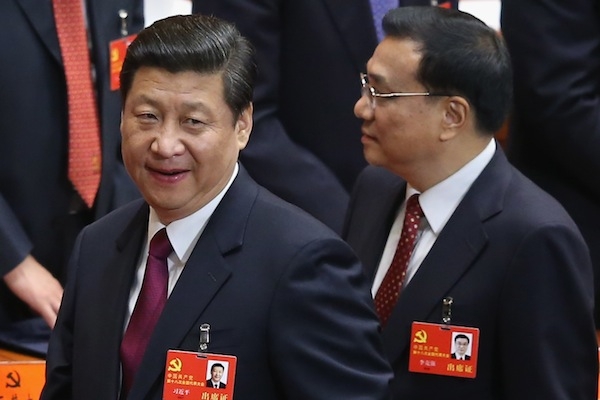Not only the US, but China is gearing up to welcome a new President, in its case Xi Jinping. That’s not the only similarity between the two global powers. While nothing can beat America’s critical levels of debt (watch the media leap like lemmings over the term ‘fiscal cliff‘), the Middle Kingdom isn’t doing too shabbily at clocking up credit of is own.
It’s a bit of a myth that Easterners love to save, as a report today from Standard Chartered shows. The explosion of a middle class means consumers want their shiny goods, and they want them now. China’s new leader will inherit an economy that’s 30 per cent more leveraged than the one his predecessor Hu Jintao took over in 2002.
Furthermore, China’s total leverage (in other words, borrowing) will rise from 191 per cent of GDP at the end of 2011 to 206 per cent by the time this year is over, according to Standard Chartered calculations. This figure includes public, consumer and corporate debt. Before the New Year arrives, China’s public debt will stand at 58 per cent, consumer debt at 19 per cent and corporate debt at 128 percent.

Standard Chartered points out this is not altogether a bad thing, especially in the shorter term. After all, nobody can have faith in an economy that doesn’t take any risks or make investments. In the longer run though, Beijing would do well to be more prudent. ‘Even a mild deterioration in credit quality could be severely damaging to China. A non-performing loan ratio of 12 per cent would wipe out the banking sector’s capital.’
And here’s a problem Barack Obama doesn’t face: a murky, mysterious lending system. China’s financial landscape is dotted with ‘local government investment vehicles’ whose activities can be puzzling and opaque. Not to mention the nation’s multi-trillion ‘shadow banking system‘ that’s probably expanding too fast for its own good. As China’s big guns meet for the CCP congress at the Great Hall of the People, they may not want to introduce the democratic changes that the country so badly needs and wants. But they may want to bring more reforms in an area close to their hearts – the economy.






Comments